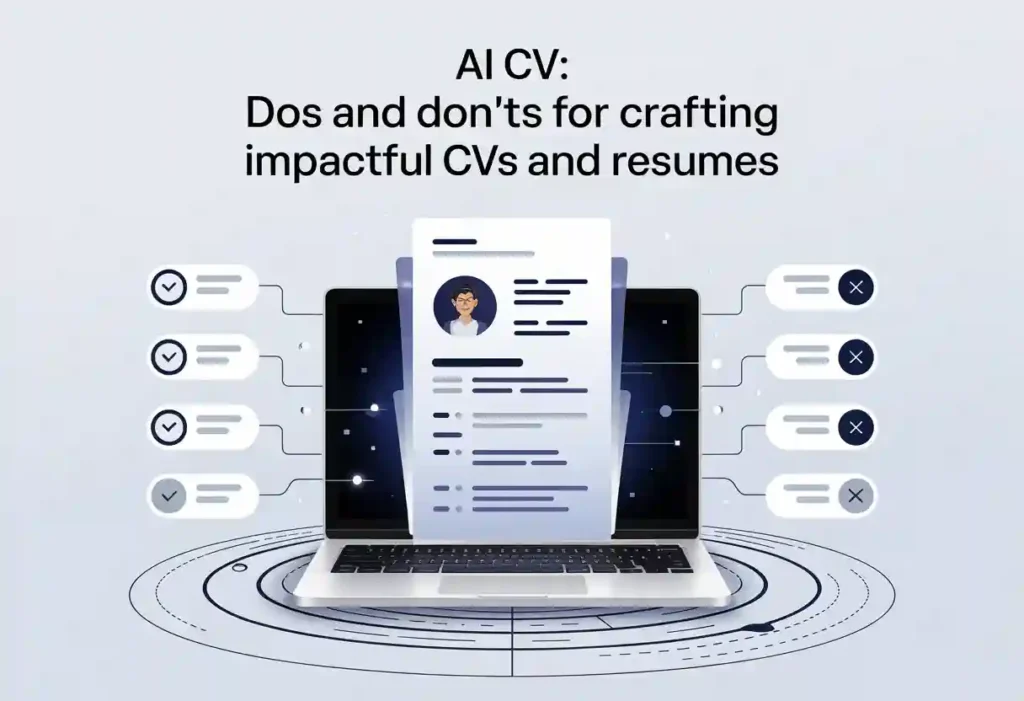Start with Self-Discovery, Not Job Listings
A graduate job is much more than getting employed as soon as possible.
That’s because you feel it is the natural progression from graduating.
There are many things to consider when looking at starting your career.
The first piece of advice when approaching this decision is to sit down.
Write some answers to critical questions.
These queries will help inform the direction of your career progression.
These questions are as follows:
Where do my passions lie?
By this, we mean that it is helpful to understand what motivates and inspires you in life and work.
For example, you might have a passion for designing buildings.
Or a passion for creating music or developing relationships.
What skills and competencies do I have?
Asking yourself what you are good at is something that, at times, can be challenging.
However, having a firm grasp of your professional strengths is critical to understanding which role you will likely succeed in and enjoy.
Read More
- Mental Models: The Ultimate Guide for Boosting Your Problem Solving Skills
- Prepare to be an exceptional candidate for a job
- Great article on resume builder
- How to find a job this month
- Putting work experience section in a CV rightly
What is it that I want from a graduate job?
What do you need your graduate job to offer you as part of the contract?
Making a short bullet point list can help you decide on the criteria you desire for your chosen role.
Ask yourself about the technical specifications of the job you want
This question pertains to the training opportunities available.
It also addresses your salary expectations and the career progression trajectory.
The second advice is not to jump immediately on the first offer you get unless it’s the right one for you.
Before answering any offer, review your questions and criteria for the desired role.
Does this role hit most of the checklist? How could you improve it?
Key Job Roles By Industry
Below is a list of jobs that we have separated into industry groups.
This information gives you a brief idea of the positions in the most critical industries.
And what kind of training and skills each one requires.
Also, there is a short explanation of each of the roles we picked.
We hope this list will inspire you to discover a new role or industry you may not have considered.
By no means is this an exhaustive list.
1. The Insurance Industry
In the insurance industry, graduates typically seek a Graduate Risk Consultant job.
This position represents the first rung on a very tall ladder.
Insurance is one of the industries that starts graduates on an impressive salary of approximately £30k plus a year.
This role includes helping clients identify, understand, and minimize financial risk in their business operations.
This involves corporate insurance calculations, industry standards evaluations, and plenty of client management skills.
Degrees that suit this role include business, accountancy, mathematics, and economics.
2. The Engineering Industry

There are many different branches of the engineering industry.
These include civil, mechanical, aerospace, electrical & electronics engineering.
The first job in most of these areas will be as a Graduate Engineer.
Depending on the field you go for, you may be helping to create projects from railways to electrical systems in power stations.
Getting involved in the engineering industry usually suits those who enjoy creating large physical projects that employers hire them to do on long-term contracts.
Degrees might be in this role: Chemical Engineering, Civil and Environmental Engineering, Electrical & Electronics Engineering, Computer Science, Mechanical Engineering.
3. The Energy Industry
A career in the energy industry can be a satisfying and long-lasting profession.
It is a field full of exciting challenges and opportunities.
There are many graduate jobs available in the energy sector.
These include communications, marketing, planning, and analysis.
One such position might be Assistant Ecological Consultant.
For this job, you would be conducting environmental policy impact assessments.
Cost-benefit analysis creation and environmental data collection are the other duties.
Degrees that suit this role include economics, mathematics, geography, biology, chemistry, and environmental studies.
4. The Information Technology Industry
IT is an ever-expanding industry both in size and complexity.
Many different roles exist within its remit.
These range from Web Developers to Data analysts.
We will quickly look at one of the most famous software developers in the industry.
A Software Developer analyzes software users’ behavior and needs, whether in a digital design studio or a data security company.
She develops specific software to meet those needs.
This usually involves a great deal of coding and computer literacy skills.
To become a Software Developer, you can pursue a technical degree in the subject area, complete various software engineering courses, or become an apprentice to an established software engineer.
Information technology and information systems, computer science, software engineering, and mathematics are among the degrees that suit this role.
5. The Recruitment and HR Industry

Recruitment and HR are among the most critical industries in the working world and are integral to the continued functioning of any company or enterprise.
Roles in this industry include Recruiter, Human Resources Specialist, Employment Specialist, and Labour Relations Specialist.
We will zero in on the desirable position of Human Resources Administrator.
The HR Administrator is the first point of contact between a company and any HR-related business.
This role’s responsibilities include handling employment contracts, scheduling interviews, updating internal HR databases, and liaising with recruitment agencies.
To become an HR Administrator, you will likely need a degree in a relevant discipline.
Then, apply to become an HR intern or apply for an assistant job and work your way up to the Administrator position.
To gain skills specific to this job role, a personnel management course can be completed in addition to a degree.
Degrees suitable for this role include HR Management, Psychology, Business Administration, Economics, and Finance.
6. The Healthcare Industry
The vast healthcare industry has many roles and opportunities covering all facets of medicine and care.
These cover roles such as General Practitioner, Dentist, Care Nurse, Psychologist, Therapist, and Radiologist, among many others.
For this industry, we will examine one of our society’s most crucial job roles: the nurse.
A nurse’s role usually centers around caring for patients in some form or another.
A nurse is usually part of a team of consultants, doctors, and care specialists.
Their role encompasses medical, administrative, and social elements, and establishing connections with families and loved ones.
To pursue the role of being a nurse, most people study and complete a specialist degree in nursing.
This course comprises both practical and academic parts. In the UK, the NHS will handle your progression from graduate to nurse on the ward.
Degrees that suit this role: Nursing and Midwifery.
7. The Hospitality and Events Industry
Another industry with a broad scope, and one that provides a rich and rewarding spectrum of careers in the hospitality and events industry.
Jobs in this industry include Chef, Waiter, Barista, Concierge, Party Planner, and Conference Producer.
When it comes to Hospitality and Events, we will look at the role of a Chef.
And how to start your pursuit of this exciting and skillful career.
The job description of a chef varies from establishment to establishment.
Yet, the core duties of preparing and serving high-quality food rarely change.
The role of a chef includes studying recipes, setting menus, setting up kitchens, cooking food on time, acting as a leader for the kitchen staff, and delegating responsibilities.
Become a Chef; there are various routes.
Some get a low-rung job in a kitchen immediately, such as a Commis Chef position, and then work their way up to Head Chef from there.
Others enroll in a culinary arts program or seek a Chef apprenticeship and progress that way.
Degrees that might suit this role include a bachelor’s in culinary arts, catering, and food preparation.
8. The Public Service and Administration Industry

The public service industry provides rewarding and satisfying careers for millions of people in this country.
It is one of the widest-ranging industries in terms of career opportunities.
Some careers in this industry include Civil Service Administrator, Policy Officer, Corporate Treasurer, and Facilities Manager.
One of the most rewarding jobs in this industry is a Local Government Officer.
This role has many responsibilities, and the driving force behind each is ensuring that the local government’s policies and procedures are delivered cost-effectively.
Responsibilities of this role include:
Coordinating departmental and corporate plans, managing and evaluating local government-led projects, coordinating the implementation of council decisions, and circulating reports to those affected.
To become a Local Government Officer, candidates must complete studies in a relevant degree and gain work experience in the public service sector.
With the right skills and experience, potential applicants can apply for a role in their local government authority.
The following degrees suit this role: Business Studies and Management, Economics, Legal Studies, Politics, Social Policy, and Administration.
9. The Marketing, Advertising, and PR Industry
This industry is about getting the word out.
If you are a competent and effective communicator, a role in this industry might be well suited to your abilities.
Every company, organization, charity, and public body uses marketing, PR, and advertising in some way. Thus, the spectrum of jobs available is vast.
Some specific roles include Advertising Director, Content Marketing Associate, Digital Marketer, and Public Relations Officer.
We thought we might examine the Marketing Executive role, one of the most common in this industry.
Some of the responsibilities a Marketing Executive may have included in their job description involve developing marketing campaigns and writing and proofreading creative copy.
My other responsibilities are pitching and evaluating marketing ideas and strategies and handling clients.
A degree in a relevant field is the first step towards becoming a marketing executive.
And then seek work experience in a marketing or PR office.
Companies may offer you an internship, the first stage of working in an executive role.
Degrees that suit this role are marketing and communications, business management, psychology, history, and journalism.
10. The Accountancy, Banking, and Finance Industry
Accountancy and finance-related jobs are also fundamental to the functioning of most businesses and public bodies.
Organizations need bookkeepers and finance specialists to keep the world of business moving.
This could be a profitable industry if you enjoy the power of numbers and statistics.
Some examples of roles in this industry include Accountant, Auditing Clerk, Banker, Tax Collector, and Investment Banker.
We are going to zero in on the Accountant position for this industry.
It is one of the most common positions in the industry. It is prevalent in almost all companies.
The role of an Accountant is varied but usually revolves around balancing financial records.
For example, some responsibilities for an accountant include preparing tax returns and monitoring spending and budgets.
Other responsibilities include analyzing financial risk and keeping account books and systems current.
To become an accountant, the first step is to attain a degree in a relevant field.
In addition to your degree, you must take various industry-specific exams that solidify your ability to move into an accountancy position.
These include AAT, ACCA, ICAEW, and CIMA qualifications.
Degrees that suit this role include Accountancy, Finance, Mathematics, History, and Physics.
11. The Engineering and Manufacturing Industry.

Again, this industry has a vast scope for diverse job roles.
Every establishment, business, and organization relies on some fraction of engineering or manufacturing, even if that’s just the building from which they operate.
Some examples of engineering and manufacturing jobs include Civil Engineer, Electrical Engineer, and Health and Safety Engineer.
Technicians, Fabricators, Machinists, Power Plant Operators, and Quality Control Inspectors are the others
We will look at the Health and Safety Engineer role for this category.
It is one of the many types of engineers in this wide-reaching sector.
The duties of a Health and Safety Engineer encompass a lot of things.
These include maintaining and applying current health and safety policies and regulations, and reviewing plans and specifications for new machinery and equipment.
These can help ensure they meet safety standards and install safety devices on machinery.
To become a Health and Safety Engineer, you will probably need to start by completing a 3-year undergraduate degree in some engineering or another relevant field.
After this, you may want to complete a post-grad master’s or go directly into the industry.
Degrees that suit this role are Chemical, Mechanical, and Aerospace engineering.
Agricultural engineering, Biomedical Engineering, and Computer engineering are the others.
12. The Industry of the Law
A career in law can be a great job option for those with a strong sense of right and wrong and a hard-working disposition.
The development and adjudication of the law are two of the most integral parts of living in a civilized society.
Therefore, being an active part of its application can be enormously rewarding.
Some examples of the types of careers that you can get into in the law are Attorney, Claims Adjustor, and Solicitor.
Public Defence Lawyer and Paralegal Officer are the others.
We wanted to have a look at the Solicitor role for this category.
It is one of the most common paths to a career in law.
The duties of a Solicitor include attending meetings with clients and drafting and negotiating legal documents.
The others are writing contracts, providing legal advice, and researching points of law.
To become a Solicitor, one must complete a qualifying law degree regulated by the Legal Practice Course.
You then must complete a Common Professional Examination (CPE).
Depending on where you want to practice law, take various exams to begin practicing as a Solicitor, such as the BAR exam in America or the BPTC in the UK.
Degrees that might suit this role: Law, Public Justice.
13. The Education Industry
Teaching or tutoring is often regarded as one of the most rewarding careers in terms of career satisfaction.
Every country depends on education to produce skilled and valuable citizens.
Some examples of the types of careers that you can get into in education are a Primary School Teacher and a University Professor.
Librarians, Academic tutors, and University Administration officers are others.
We decided to focus on the Primary School Teacher role for the education category.
It is one of the most desirable roles in the profession.
The day-to-day responsibilities of a Primary School Teacher include creating lesson plans and assisting in curriculum development.
The others are analyzing student progress, managing classroom activities and behavior, and attending professional development classes.
There are a few routes to becoming a teacher.
The first is to complete a degree that has Qualified Teacher Status.
These usually take four years to complete.
The second option is for those with a degree who want to take up teaching, which is to take a PGCE course.
This is a one-year course that gives you the same teacher status.
You could also take up an apprenticeship through the Teach First route.
Degrees that might suit this role:
Any degree with QTS, such as a Bachelor of Education, a Bachelor of Arts, or a Bachelor of Science with QTS.
14. The Media and Internet Industry

For creative, visually-led thinkers, a career in the media might be an excellent choice.
The media offers opportunities for many people with a wide range of skills and proficiencies.
Some examples of careers you can get into in the media and internet industries include a video editor and a broadcast journalist.
The others are the editorial assistant, media and communications officer, film director, event manager, and marketing researcher.
We are focusing on the Broadcast Journalist role in the media industry.
It has a famous role in this industry.
A Broadcast Journalist’s duties include conducting interviews, researching, and writing broadcast scripts.
The others produce pieces for cameras on news events, record and create audio for reports, and pitch ideas for stories.
To become a Broadcast Journalist, the established route is to acquire a degree in a relevant field.
This can be Journalism, Media Studies, or Mass Communication.
Then, find an internship or work experience and enter the industry.
Degrees that suit this role include journalism, media studies, and mass communications.
15. The Sales Industry
If you are driven by the thrill of the sale and seeing growth in a company or organization, a career in sales is the right fit for you.
Examples of the careers you can get into in the sales industry include Sales Associates and Sales Managers.
A Sales Representative, Sales Floor Assistant, and Sales Consultant are the others.
In terms of the sales industry, we thought we would examine the Sales Associate position closely, as it is one of the most common career choices in this industry.
Some day-to-day responsibilities of a Sales Associate include greeting customers and operating cash registers and PIN machines.
The others are working to increase store sales and provide customers with product advice.
To become a Sales Associate, you need to undergo onboarding training from a shop or organization, which will help you develop your professional skills.
You’ll need good customer service and negotiation skills to succeed in this role.
Degrees that might suit this role:
Business and Finance, Marketing and Communications, PR Communications, or Economics.
16. Business, Consulting, and Management
The business world is one of the most exciting and complex industries in which to be involved.
It has many exciting careers under its large umbrella.
Those who enjoy a holistic approach to business and making money will be a good fit for this job.
Some business, consulting, and management jobs include Business Development Executive, Customer Service Manager, Office Clerk, and Business Consultant.
In the Business, Consulting, and Management industry, we thought we would examine the role of a Business Consultant.
It is highly desirable as a position and incredibly versatile in the job description.
Some day-to-day responsibilities of a Business Consultant include organizing and executing assigned business projects on behalf of clients.
The others are meeting with clients when needed, performing an initial assessment of a problematic situation, collecting information about the client’s business, and providing professional guidance on improving revenue.
There is no established route to becoming a business consultant.
However, most business consultants have a range of experiences and academic success in common.
They usually have an undergraduate or postgraduate business degree and above.
They have also usually run a business at a high level and thus have the experience to offer other people as a consultant.
Degrees that might suit this role:
Business and Accounting, Business and Finance, Economics, and International Relations.
17. The Retail Industry

Retail is one of the critical pillars of our capitalist society.
It keeps money moving around the world every day.
Are you a people person with a great smile and an excellent communication style?
Then retail may be precisely the industry for you.
Some jobs in the retail sector include Bookseller, Commercial Gallery Manager, Florist, and Logistics and Distribution Manager.
Others are Personal Shoppers, Retail buyers, Procurement Managers, and Warehouse Managers.
For the retail industry, we are looking at the exciting role of Procurement Manager.
This job title is one of the critical roles in the retail industry.
It is one that many people look at as essential for the running of any retail business.
Some of a Procurement Manager’s day-to-day responsibilities include analyzing the business’s demand for services and products and negotiating and agreeing on product contracts.
The others are developing saving strategies and liaising between suppliers, manufacturers, marketing, and shop staff.
Most hiring managers looking for a Procurement Manager want to see someone with a relevant degree or several relevant certifications next to their name.
This includes the Chartered Institute of Procurement & Supply Advanced certificate.
In addition to these qualifications, they need to demonstrate skills such as communication, budget management, and leadership.
Degrees that might suit this role:
Business, Economics, Mathematics, Finance, or Business Relations.

18. Law Enforcement and Security
If you want to serve and protect your community, a career in Law Enforcement or Security may be the right choice.
Some examples of jobs that exist in this industry include becoming a member of the Armed Forces.
Police Officers working in the prison service or acting as private security guards are the others.
Looking at the Law Enforcement and Security Industry, it would be helpful to zero in on the role of the Police Officer.
It is one of the most respected and desirable jobs.
Some of a Police Officer’s day-to-day responsibilities include providing a visible presence to deter crime and responding to calls and requests from the public.
The others investigate criminal activity, arrest suspected criminals, and make potentially dangerous situations safer.
To become a Police Officer, you don’t necessarily need a degree, although one can be helpful.
Yet, you must complete basic training and pass various fitness, medical, and education recruitment tests.
Degrees that might suit this role:
Policing, Law, Public Communications, History, English.
19. The Creative Arts and Design Industry
If you have an artistic calling or are creative, the Creative Arts and Design industry may offer a range of exciting careers that will suit you.
Some examples of jobs that exist in this industry include Interior Designer, Art Director, Fashion Designer, and Graphic Designer. The rest are Multimedia Artists, Industrial Designers, and Prop and Stage engineers.
We’re looking at the Graphic Designer’s role in the Arts and Design industry.
It is a commonly desired profession.
And one that illustrates the type of work that goes into being part of this industry.
Some of a Graphic Designer’s day-to-day responsibilities include liaising with clients to determine their requirements and budget, and managing client proposals from typesetting to design.
The other responsibilities are printing, production, and preparing rough drafts of material based on an agreed brief.
To become a graphic designer, you must have IT and drawing skills.
To acquire these, most Graphic Designers attend university and study for a specialist degree.
However, you don’t necessarily need to do this to be considered for a role.
Degrees that might suit this role:
Graphic Design, Art, and Design.
Our CV and resume templates page contains an extensive list of industries and some of their most valuable job titles.
Don’t forget to create your resume using our CVJury free resume builder.
Key Questions To Remember When Considering Graduate Job Roles
- How important is job satisfaction to you? Is getting fulfilled at your job more important than your salary and the technical experience you’ll gain?
- If so, you might be better served to follow your passion above your competencies when looking for a grad job.
- What will the job progression likely look like once you enter the industry? What direction is your graduate job likely to push you in? And where do you think it will take you in five to ten years?
- How will this job affect your geographical location? Do you need to be in a specific region or country to do this job? And if so, how will that impact the rest of your life?
- Do you need to complete further study or gain experience to get the graduate job you desire?
Ready To Find The Right Grad Job Roles?
Hopefully, having read this blog, you will understand more of the questions and considerations you must consider when choosing a graduate job.
You can explore our other content for more details on this subject.
Or, if you are looking for more advice on how to get a job straight out of university, insider career insights, resources, and expert tactics, then you can go ahead and explore here.
With the help of the CVJury team and with a little hard work, there is no reason you cannot get the grad job of your dreams.
Good luck out there!
Keep Reading
- Interesting High-Demand Jobs That You Should Consider Going Into
- Career Wisdom from Harvard's 'Learning & Development'
- How to write a resume like a guru



